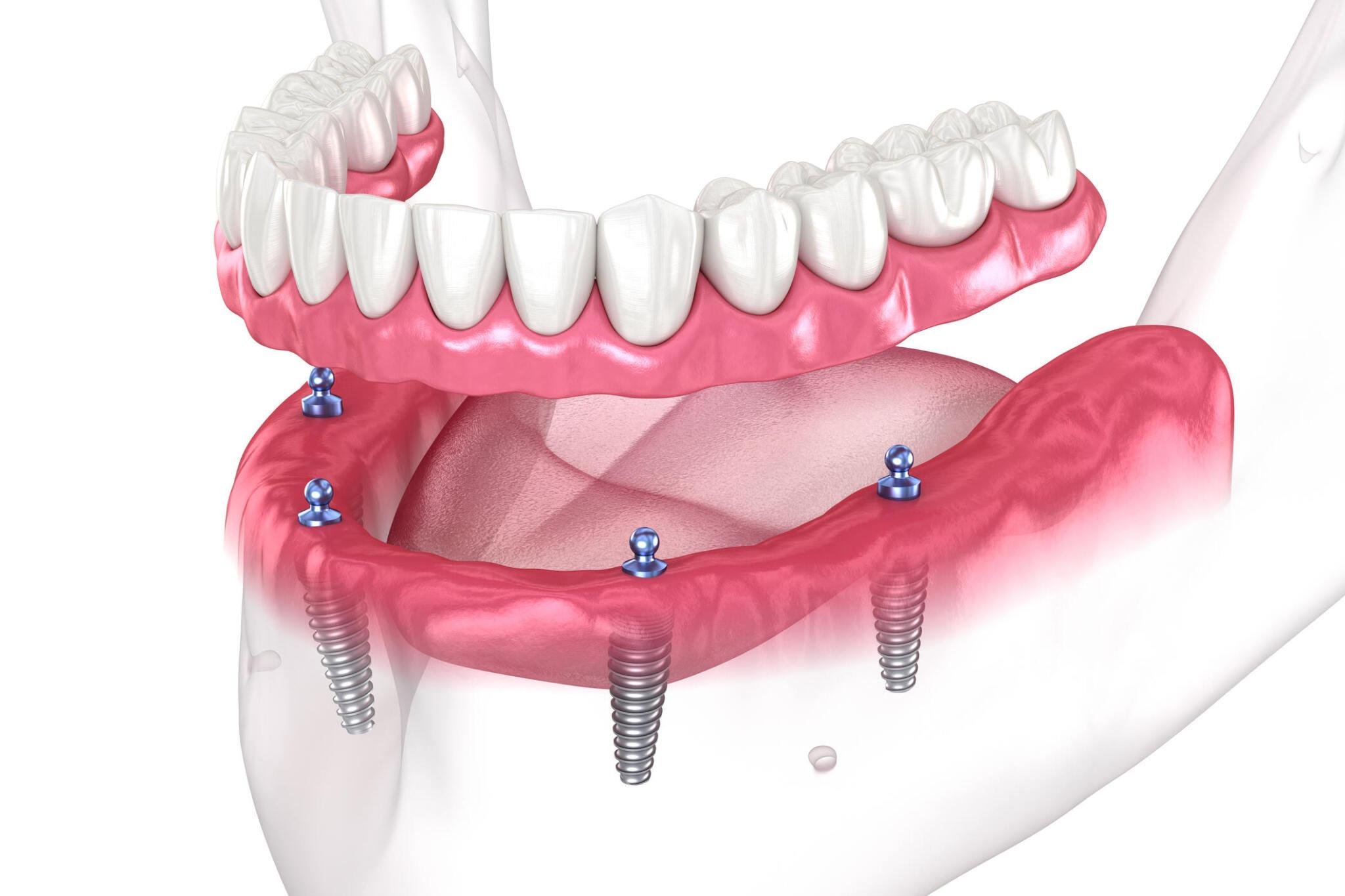In modern dentistry, All-on-4 implants have emerged as a revolutionary solution for individuals seeking full arch rehabilitation. If you're exploring options to restore your smile and functionality, understanding the nuances of All-on-4 implants is crucial.
In this comprehensive guide, we'll delve into the specifics of All-on-4, explore the dental conditions suitable for this technique, discuss factors affecting eligibility, highlight the advantages, walk through the consultation and assessment process, explore alternatives, and guide you on choosing the right professional, especially in the McKinney area.
Understanding All-on-4 Implants
Let's start with the basics. All-on-4 implants represent a cutting-edge technique designed to provide a complete prosthetic teeth anchored by just four strategically placed implants. This innovation has transformed the landscape of full arch rehabilitation, offering a more efficient and less invasive solution compared to traditional implant methods.
The key components of All-on-4 include four dental implants, usually made of titanium, strategically placed in the jawbone to support a fixed prosthesis. This design optimizes stability, functionality, and aesthetics, giving patients a natural-looking and functional smile.
Dental Conditions Suitable for All-on-4
All-on-4 implants are particularly suitable for individuals facing significant tooth loss or those with compromised oral health due to various reasons. Ideal candidates often have conditions such as:
Severe Tooth Loss: All-on-4 is a viable option for those missing most or all of their teeth in one or both arches.
Bone Loss: Unlike traditional implants, All-on-4 requires less bone density, making it suitable for individuals with some degree of bone loss.
Denture Wearers: Individuals dissatisfied with removable dentures can benefit from the stability and permanence offered by All-on-4 implants.
Implant Candidates with Limited Time: All-on-4 reduces treatment time compared to traditional methods, making it an attractive option for those seeking a quicker restoration process.
Factors Affecting Eligibility
While All-on-4 is a versatile solution, certain factors can influence eligibility:
Health Conditions: Certain individuals may need a thorough evaluation. Your overall health plays a crucial role in the success of the procedure.
Smoking Habits: Smoking can hinder the healing process and affect the long-term success of implants. Dentists may recommend quitting or reducing smoking before undergoing the procedure.
Periodontal Health: Healthy gums are essential for the success of All-on-4 implants. Any existing gum disease should be addressed before the procedure.
Pre-existing Dental Work: Individuals with extensive prior dental work may require additional assessments to ensure compatibility with All-on-4 implants.
Advantages of All-on-4 Implants
Choosing All-on-4 implants comes with a myriad of advantages:
Reduced Treatment Time: All-on-4 requires fewer surgeries, reducing the overall treatment time compared to traditional implant methods.
Improved Stability and Functionality: The strategic placement of implants ensures a stable foundation for the prosthesis, offering enhanced functionality when compared to removable dentures.
Aesthetics: All-on-4 provides a natural-looking smile, boosting confidence and self-esteem.
Cost Efficiency: While the initial investment may seem significant, All-on-4 is often more cost-effective in the long run due to reduced treatment time and maintenance.
Consultation and Assessment Process
Embarking on the All-on-4 journey begins with an initial consultation with a qualified dentist in McKinney area. The dentist will conduct a thorough assessment during this consultation, including X-rays, CT scans, and impressions. These diagnostic tools help create a customized treatment plan tailored to your needs.
Alternatives to All-on-4 Implants
While All-on-4 is a groundbreaking solution, exploring alternatives such as traditional implants, implant-supported dentures, or removable dentures is essential. Each option has its own set of advantages and considerations. Consulting with a dentist in McKinney will help you understand which option best fits your specific requirements and preferences.
Conclusion: Choosing the Right Professional
The success of All-on-4 implants hinges on selecting the right dental professional. In McKinney, where dental care options abound, it's crucial to research and choose a qualified and experienced dentist. Look for credentials and patient reviews, and inquire about their experience with All-on-4 procedures. Asking questions during the initial consultation will help you gauge their expertise and ensure you feel confident in their ability to guide you through the process.
All-on-4 implants offer a transformative solution for individuals seeking full arch rehabilitation. Understanding the suitability, advantages, and the importance of choosing the right professional is paramount in achieving successful outcomes. If you're in McKinney and considering All-on-4 implants, take the first step by consulting with a reputable dentist who can guide you on your journey to a confident and radiant smile.





